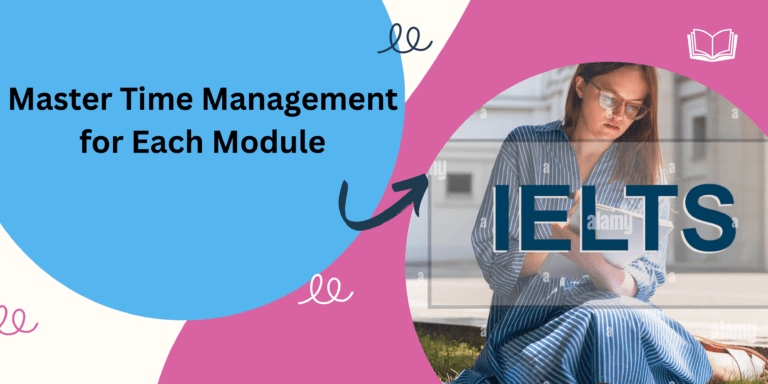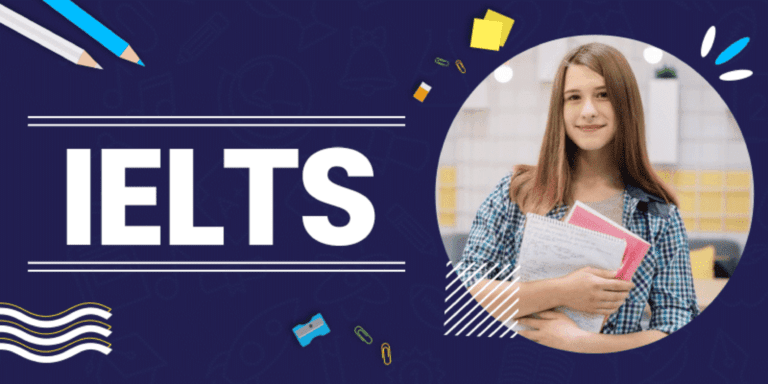Introduction
The International English Language Testing System (IELTS) is not simply an English exam, it is the passport to education, employment around the globe. Every year, thousands of people take a chance at achieving a Band 7, Band 8 or higher (and perhaps hundreds of thousands are just looking to get an acceptable test score), and only a handful of test-takers achieve this goal. What do top scoring IELTS test-takers do differently? Is it natural ability, endless practice or is there some secret sauce to achieve the slick test score? The answer is that cracking IELTS is not a game of chance and luck; cracking IELTS is strategic. The high achievers do not study harder; they study smart. They know the test format, make a targeted plan, and condition their brain to work well under pressure. While this blog will still be helpful for you whether this is your first exam or your second, third or fourth listening, knowing the strategies that work for you can help save you time, effort and stress. This blog fully investigates the secrets that high achievers use to ace the IELTS exam. From time management techniques, building vocabulary, speaking fluently and listening actively to everything else in between, these tips and techniques come from the highest scoring test-takers and have been tried and tested. If you are serious about your IELTS success you should apply these strategies. Read on to find out how to approach IELTS preparation like a boss and join the ranks of high scoring test-takers globally.
1. Understand the IELTS Format Inside-Out

Before beginning your IELTS preparation, you need to know the exam’s format. The IELTS test has four modules: Listening, Reading, Writing, and Speaking. Each module has different rules and time limits. Knowing the different question types, such as multiple choice, matching, and sentence completion, can help you become more confident. Also, knowing how the test is generally sequenced can help you plan out your studying as well as understand what the examiner expects of you for each module. Use the IELTS website and Cambridge IELTS books to get a good taste of the real exam. You might even go home and create a mock exam situation to practice under similar test pressure to get a good example of how the IELTS will feel to you. Good performers are generally comfortable in the test format and can save some time with the test and possibly avoid mistakes. If you have any uncertainties, go to YouTube and watch some study videos or take an IELTS preparation course. Knowing the test format is an important step toward developing more comfort, less anxiety, and more efficiency as you prepare. Deep-down, you want the test to be a predictable system you can master; knowing the right stuff might help. The more you know about what to expect, the more strategic you feel on test day, and therefore, even more relaxed.
2. Build a Study Plan Tailored to Your Weaknesses
Top scorers have a personalized plan. They assess their strengths and weaknesses and schedule studying. If your writing is lower than your listening, writing needs more time. Find a full-length diagnostic test and figure out your scores. From there, create a plan over the week that establishes study days. For example, allocate Mondays and Wednesdays for speaking with reading or grammar practice on designated days. You can also use apps, flashcards, and resources websites that provide feedback so you can steadily improve. Take your goals or tasks and break them down into small steps to track progress every week. Work smart over hard, so doing two hours of focused training is better than five hours of distracted reading. Finally, account for review in your plan so you are processing current learnings. Be sure to schedule and take breaks, so you don’t burn out. Creating a good plan improves motivation, and productivity in your study routine. It’s also an effective way to ensure you are covering each module effectively. Continuity is better than intensity, and trust me, even top scorers fail by cramming at the last minute. Plan smart, stay consistent and flexible.
3. Practice Speaking Daily and Record Yourself
The Speaking section tends to be the most stressful, but successful test-takers use the stress to showcase their English communication skills. One of the reasons top scorers excel is because they speak regularly (ideally video or audio recorded). To speak fluently while under pressure you must have both confidence and familiarity with English communication styles. Use mobile apps/voice recorders to hone in on common IELTS speaking topics like travel, technology, education etc. When you practice speak clearly with consideration to pronunciation, fluency, grammar, and lexical resource. These language components are the actual criteria the IELTS examiners will refer to when scoring you. As you review the videos/recordings, you will become aware of pauses, fillers, and/or weak vocabulary. Use this awareness in your next practice. Consider joining speaking clubs, language exchange apps, or finding another person preparing for IELTS to speak with.
Speaking regularly will also help train your brain to ‘think in English’. When you get used to speaking English, you will add more clarity into an IELTS question . Your English will begin to come out easily (instead of the delay when we are using translation). Mock interviews with friends or tutors can be useful to help with managing test anxiety which is similar to real testing conditions. Confidence comes from repetition – with each time you engage in speaking daily – the fear will turn to familiarity. Poorer scorers often speak English once every few months for their test preparation – top scorers will speak English like it is part of their day .ve it be a last minute speaking skill for a one-off test. It takes very little time to pick a question, record, and speak daily – so do this!
4. Master Time Management for Each Module

The ability to manage time is a top scorer’s super power. In all four sections of the IELTS, there is not a second to spare: no one is going to give you any extra minutes – no one’s going to listen to excuses either. If you do not train yourself to complete your tasks in the limited time, there will be questions unanswered, you will have written clueless essays, etc. Get started with some timed practice. You will need to practice getting the feel for the right pace. For Reading, you want to spend no longer than 20 minutes on each passage. In Listening, train your ears to receive the answer the first time: the audio is recorded and it is only played once. In Writing Task 2, you want to take 40 minutes and out of the 40 minutes – you should spend 5 of them on planning your structure.
When you have essay structure and style in mind. Practice writing your essays using a stopwatch, or at least time yourself, and aim to finish with 3-5 minutes to spare to review. In Speaking, do not rush – do not be a mindless speed talker and do not fall into the trap of only thinking about time for task completion. Awareness of time is something that top scorers develop by practicing every day. Use timers, set reminders, and practice exam conditions consistently. The more you practice with the pressure of time, the more you are able to manage it on test day. Completing your test is the priority, but doing so with a solid performance within the time limit should also be at the forefront of your mind. Time is a skill, once you hone it, you will put yourself ahead of the rest of the test takers.
5. Expand Your Vocabulary Strategically
High scoring IELTS candidates don’t just memorize word lists; they construct a vocabulary bank that they are able to use to express their communication. The key is to learn words in context, which means taking the time to learn non-technical vocabulary. The environment, education and technology because they often appear in the IELTS. Use vocabulary journals where you write down words with definitions, synonyms, antonyms, example sentences and even collocations. So that you are able to reproduce the new words when needed. Use apps like Anki or Quizlet to actively review using a spaced retention method after you have completed the basic work of learning. Additionally, encounter rich language in different forms: newspapers, blogs, academic articles and TED Talks expose you to immense vocabulary. Creating a wide bank of words exposes you to the context in which they are used.
When writing and speaking don’t rely too heavily on basic words like “good”, “bad” or “very”. Instead, try more descriptive options like “beneficial”, “detrimental” and “significantly”, and every time you attempt to use a new word. Check that you understand what it means or how to use it appropriately without misleading the person assessing you! Take the time to recycle your learnt vocabulary. The goal is not to outsmart the examiner with ‘greater’ words, but to communicate appropriately with an appropriate range of vocabulary, and do so with accuracy. Consider your passive acquisition of vocabulary and there is no reason why looking for smart ways to build vocabulary could not immediately lift your band score in both writing and speaking.”
6. Develop Strong Listening Skills Through Real-World Exposure
High scoring IELTS candidates don’t just memorize word lists; they construct a vocabulary bank that they are able to use to express their communication. The key is to learn words in context, which means taking the time to learn non-technical vocabulary in themes like health, the environment, education and technology because they often appear in the IELTS. Use vocabulary journals where you write down words with definitions, synonyms, antonyms, example sentences and even collocation. So that you are able to reproduce the new words when needed. Use apps like Anki or Quizlet to actively review using a spaced retention method after you have completed the basic work of learning.
Additionally, encounter rich language in different forms: newspapers, blogs, academic articles and TED Talks expose you to immense vocabulary. Creating a wide bank of words exposes you to the context in which they are used. When writing and speaking don’t rely too heavily on basic words like “good”, “bad” or “very”. Instead, try more descriptive options like “beneficial”, “detrimental” and “significantly”, and every time you attempt to use a new word, check that you understand what it means or how to use it appropriately without misleading the person assessing you! Take the time to recycle your learnt vocabulary. The goal is not to outsmart the examiner with ‘greater’ words.To communicate appropriately with an appropriate range of vocabulary, and do so with accuracy. Consider your passive acquisition of vocabulary and there is no reason why looking for smart ways to build vocabulary. Could not immediately lift your band score in both writing and speaking.”
7. Learn the Art of Writing High-Scoring Essays
When you listen in IELTS, you do more than just hear words on a page, you understand their meaning, tone, and context. Top scorers do not only rely on practice tests, they find different types of English in the real world where they can train their ears. Commit to listening to something in English every day, whether it is a podcast, news report, documentary, or audiobook. It is important to practice listening which involves having your language accused to understand English speakers using British, Australian, and Canadian accents.
Utilize websites like TED Talks, where there are numerous talks from speakers worldwide and many from England. Youtube is another powerful tool and specifically, listen to snippets of BBC News. Perhaps you recognize the presenters. When listening, take notes and engage with it. During the test, try to use prediction to help you engage with the speaker. Often, the first question is about a technical detail. It is a good idea to listen with a transcript and replay sections on their delivery, rate of speech, contractions, jargon, and vocabulary not familiar to you.
This allows you to add other words and check your comprehension. Build this language occupation into your daily routine. This surrenders around 10-15 minutes a day will make noticeable improvements. I will say, in addition to using other forms of listening, I want you to use IELTS specific listening forms because it is good to continue to build familiarity with the type of listening assessment forms like maps, forms, conversations, etc. Do not only do practice techniques; immerse.
8. Take Full-Length Mock Tests Weekly

Taking tests every week help to build strong IELTS scores. The best IELTS scorers are do this regularly to gauge progress, decrease anxiety, and identify weaknesses. Take a complete exam of at least the Listening, Reading, Writing, and Speaking parts like the real exam. Find a quiet space, make good notes of your timing for each part of the exam, use real Cambridge or British Council material, and time each section correctly. Once you complete a mock test spend the time to analyze answers.
Why did you get marks deducted? Did you run out of time? Did you misread the question type? This feedback loop will help you make adjustments to your study plan. A mock test will also help in building your stamina for sitting a test while maintaining focus. In reality, sitting still for 2 hour and 45 minutes will use physical stamina as well. Do not skip the Speaking exam! Either record your answers or do it with a tutor. And if able, the ideal thing would be to take a professional mock test to get feedback from an IELTS expert. Ideally, the more familiar you are with the test format and its associated pressure, the higher the chance you will do well on the day. In the end, regular mock testing is what turns preparation to performance.
Conclusion
There is no secret to passing the IELTS exam – it is a systematic preparation, approach and attitude. While some of the highest scorers are very gifted language learners, often they are just smart language learners. Who have a successful system to follow – they recognize areas of weakness early, they create a system of structured approaches, they practice under IELTS-like conditions. They assess structure and score differently in each component and they are usually also reflecting and learning on their performance. Every skill from freely expressing your self and ideas in speaking, to coherently structuring your ideas in writing can be developed through practice and little bit of direction.
The tips that are provided in this blog are not generic tips – they are specific behaviours/ strategies that are implemented by those who score Band 8 or higher. If you commit to practicing these behaviours as part of your IELTS preparation routine, you are not only getting ready to take a test, you are preparing to implement the skills that will develop and allow you to communicate effectively in English for the rest of your life. Remember, IELTS is not about being perfect, it is about being proficient and presenting your knowledge in an appropriate way.
Be consistent, stay confident and trust the process! Your date with your dream score is coming. You can go from taking the test to mastering it by using these secrets as your reference. The hands on the clock is now counted down to you and now you can take action! Prepare like you pro, perform like a band 8, and therefore open your door to a global future.
